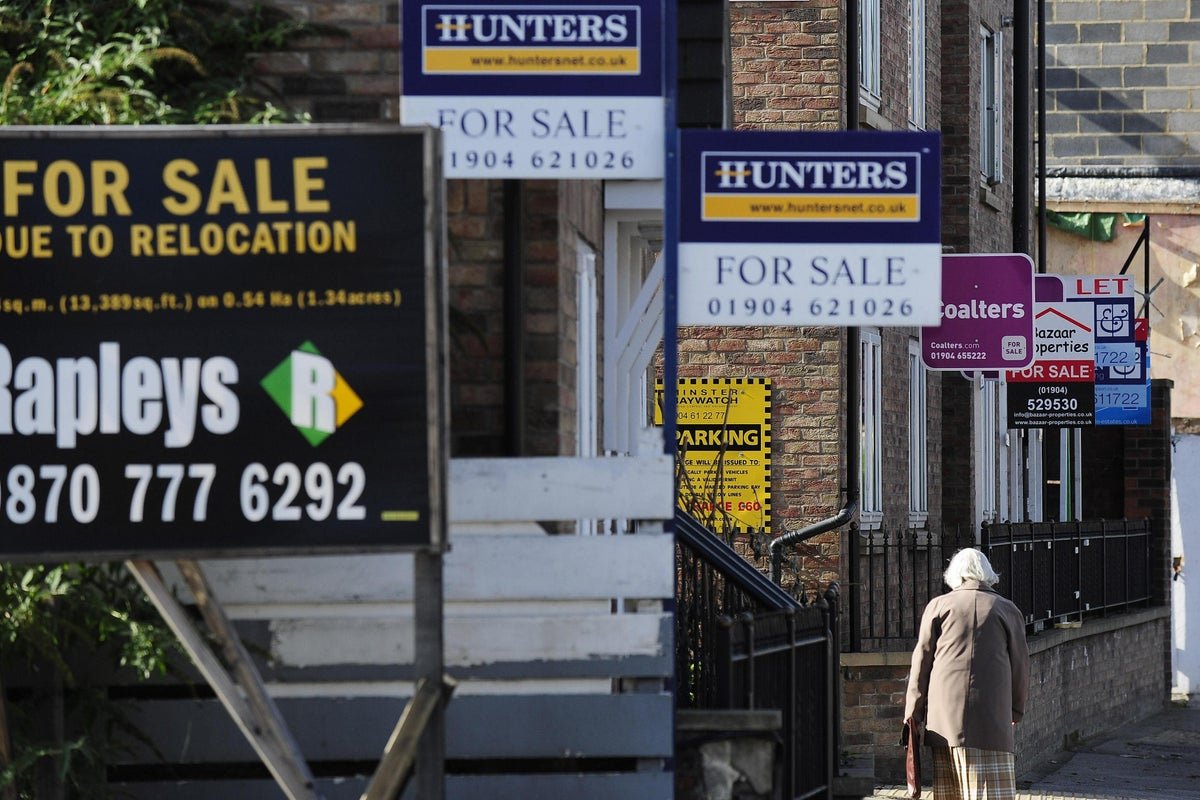The annual rate of house price growth halved as a stamp duty holiday ended, according to Office for National Statistics (ONS) figures.
The average UK house price increased by 3.5% in the 12 months to April, halving from 7.0% annual growth recorded in March this year.
Stamp duty discounts became less generous for some home buyers from April. Stamp duty applies in England and Northern Ireland.
The report said: “This is the first slowing of UK annual house price inflation since December 2023.
“This was caused by a price fall between March 2025 and April 2025, which coincided with stamp duty land tax (SDLT) changes.”
Average house prices increased to £286,000 (3.0% annual growth) in England, £210,000 (5.3%) in Wales, and £191,000 (5.8%) in Scotland in the 12 months to April 2025.
The average house price for Northern Ireland was £185,000 in the first quarter of 2025 – a 9.5% increase annually.
Within England, the North East had the highest house price inflation in the 12 months to April, at 6.4% – although this was a significant slowdown from 15.3% in the 12 months to March.
Annual house price inflation was lowest in England in the South West, at 0.9% in the 12 months to April, reducing from 5.9% in the 12 months to March.
London was the only English region where the house price annual inflation rate was higher in April (3.3%) than in March (0.9%).
ONS head of housing market indices Aimee North said: “UK annual house price inflation slowed in April, following changes to stamp duty land tax in England and Northern Ireland. The average home in the UK now costs around £265,000.
“The North East once again showed the highest annual increase, and the South West showed the lowest annual growth. London was the only English region where annual inflation rose this month.
“The rental market continues to cool, with the fifth month of slowing average annual growth across the UK. Private rent prices in Scotland grew at their slowest annual pace in three years.”
The figures were released on the same day that the ONS said that the rate of Consumer Prices Index (CPI) inflation was 3.4% in May. Many economists had been expecting the CPI rate to come in at 3.3% for the month.
Meanwhile, the average private rent in the UK was £1,339 per month in May 2025, according to ONS figures. This was 7.0% or £87 higher than 12 months ago.
The average rent for England was £1,394 in May – a 7.1% (£92) annual increase.
In Wales, rents averaged £799 in May, up by 8.5% (£63) compared with a year earlier.
The average rent in Scotland was £999 in May 2025. This was an increase of 4.5% (£43) compared with a year earlier.
The ONS said that Northern Ireland private rents figures are only available up to March 2025. The average rent in Northern Ireland was £848 in March 2025. This was up by 7.7% (£61) annually.
Jonathan Handford, managing director at estate agent group Fine & Country, said: “While the recent (Bank of England base) rate cut offered a degree of financial relief, elevated borrowing costs are still dampening activity, particularly at the more affordable end of the market. Transaction levels also remain subdued, highlighting the property sector’s sensitivity to economic signals and household finances.”
Tom Bill, head of UK residential research at Knight Frank said: “The UK housing market is still in recovery mode after the stamp duty cliff edge in April but prices are being kept firmly in check by an overhang of supply.
“We don’t expect a rate cut before August but the weak state of the UK economy is putting downwards pressure on mortgage rates, which should support demand in the short-term.”
Kevin Roberts, managing director, mortgage services, L&G highlighted a recent wave of innovative mortgage products.
He said: “Our broker data shows that first-time buyers are particularly active, accounting for nearly 60% of purchases since the start of the year.”
Jeremy Leaf, a north London estate agent said rent rises “are supported by lack of stock and urgent need for accommodation from tenants who are finding lack of choice hard to deal with”.
Sarah Coles, head of personal finance, Hargreaves Lansdown said: “For anyone hoping to get onto the property ladder, there’s little hope that property prices will fall to make your life easier.
“It means it’s worth investigating any help you can get – whether that’s the Government bonus from the Lifetime Isa, a family mortgage, or more help from the bank of mum and dad.”
Richard Donnell, executive director of research at Zoopla said: “We expect the rate of rental inflation to slow in the coming months which will be welcome news for renters. Rental inflation for those taking new tenancies are rising at their slowest rate for four years.
“The big decline in the rate of house price inflation reflects the ending of the stamp duty holiday which is now filtering through into slower price growth.
“We expect the rate of price growth to slow further over 2025 as home buyers face a large choice of homes for sale which will support a buyers market. Home prices in the Midlands, northern England and Scotland will continue to rise more quickly than across southern England where affordability is a drag on price rises.”
#Annual #house #price #growth #halves #buyers #reach #stamp #duty #cliff #edge



